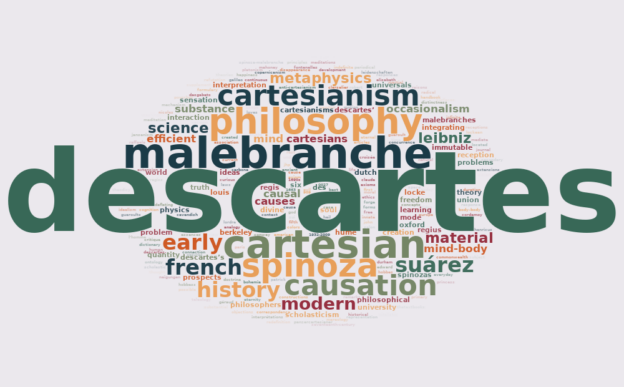Monograph Author
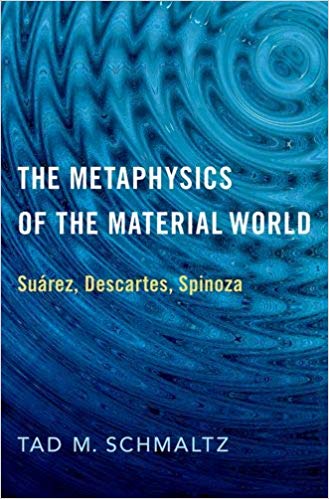
The Metaphysics of the Material World: Suárez, Descartes, Spinoza (2020)
AbstractThis book traces a particular development of the metaphysics of the material world in early modern thought. The route it follows derives from a critique of Spinoza in the work of Pierre Bayle. Bayle charged in particular that Spinoza’s monistic conception of the material world founders on the conception of extension and its modes and parts that he inherited from Descartes, and that Descartes in turn inherited from late scholasticism, and ultimately from Aristotle. After an initial discussion of Bayle’s critique of Spinoza and its relation to Aristotle’s distinction between substance and accident, this study starts with the reconceptualization of Aristotle’s metaphysics of the material world that we find in the work of the early modern scholastic Suárez. This is followed by a consideration of the connections of this version of the scholastic conception of the material world to the very different conception that Descartes offered. Especially important is Descartes’s view of the relation of extended substance both to its modes and to the parts that compose it. Finally, there is a consideration of what these developments in Suárez and Descartes have to teach us about Spinoza’s monistic conception of the material world. Of special concern here is to draw on this historical material to provide a re-assessment of Bayle’s critique of Spinoza.
Find this book

Early Modern Cartesianisms: Dutch and French Constructions (2017)
Abstract There is a general sense that the philosophy of Descartes was a dominant force in early modern thought. Since the work of the nineteenth-century Cartesian historian Francisque Bouillier, however, there has been no fully contextualized comparative treatment of the various receptions of Descartes in different portions of early modern Europe. This study addresses the need for a more current understanding of these receptions by considering the different constructions of Descartes’s thought that emerged in the Calvinist United Provinces (Netherlands) and Catholic France, the two main centers for early modern Cartesianism, during the period dating from the last decades of his life to the century or so following his death in 1650. It turns out that we must speak not of a single early modern Cartesianism rigidly defined in terms of Descartes’s own authorial intentions, but rather of a loose collection of early modern Cartesianisms that involve a range of different positions on various sets of issues. Though more or less rooted in Descartes’s somewhat open-ended views, these Cartesianisms evolved in different ways over time in response to different intellectual and social pressures. Chapters of this study are devoted to: the early modern Catholic and Calvinist condemnations of Descartes and the incompatible Cartesian responses to these; conflicting attitudes among early modern Cartesians toward ancient thought and modernity; competing early modern attempts to combine Descartes’s views with those of Augustine; the different occasionalist accounts of causation within early modern Cartesianism; and the impact of various forms of early modern Cartesianism on both Dutch medicine and French physics.
Find this book

Descartes on Causation (2008)
Abstract
This is a systematic study of Descartes’s theory of causation and its relation to the medieval and early modern scholastic philosophy that provides its historical context. Although Descartes offered a dualistic ontology that differed radically from scholasticism, his views on causation were profoundly influenced by scholastic thought. The influence is evident in his affirmation in the Meditations of the abstract scholastic axioms that a cause must contain the reality of its effect and that conservation does not differ in reality from creation. But this influence is evident as well in the details of the accounts of body-body interaction in his physics, of mind-body interaction in his psychology, and of the causation that he took to be involved in free human action. What emerges is a new understanding of Descartes’s contribution to modern thought on causation.
Find this book
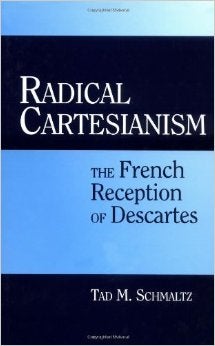
Radical Cartesianism: The French Reception of Descartes (2002)
Abstract
This is the first book-length study of the highly original form of Cartesianism in the work of two of Descartes’s French successors, Robert Desgabets and Pierre-Sylvain Regis. The book focuses on radical doctrines in these Cartesians concerning the creation of eternal truths, the intentionality of ideas, and the soul-body union, three issues that Descartes broached but did not fully explore. In addition to relating their discussion of these issues to the views of Descartes and of Cartesians such as Malebranche and Arnauld, the book establishes that Desgabets and Regis played an important, though neglected, role in the theologically and politically charged reception of Descartes in early modern France.
Find this book
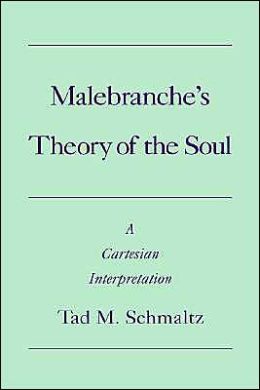
Malebranche’s Theory of the Soul: A Cartesian Interpretation (1996)
Abstract
This book concerns the attempt in Nicolas Malebranche to offer a theory of mind that involves the rejection of Descartes’s thesis that mind is better known that body. The main argument is that Malebranche was correct in claiming a Cartesian foundation for his theory, and thus that he provides a uniquely internal critique of Descartes’s account of mind. There is a consideration of Malebranche’s thesis that we know the modifications of our soul through a consciousness that is confused rather than through an idea is clear, as well as of his attempt to nonetheless defend the positive Cartesian project of constructing clear and evident demonstrations of the distinctive properties of the soul.
Find this book
Volume Editor
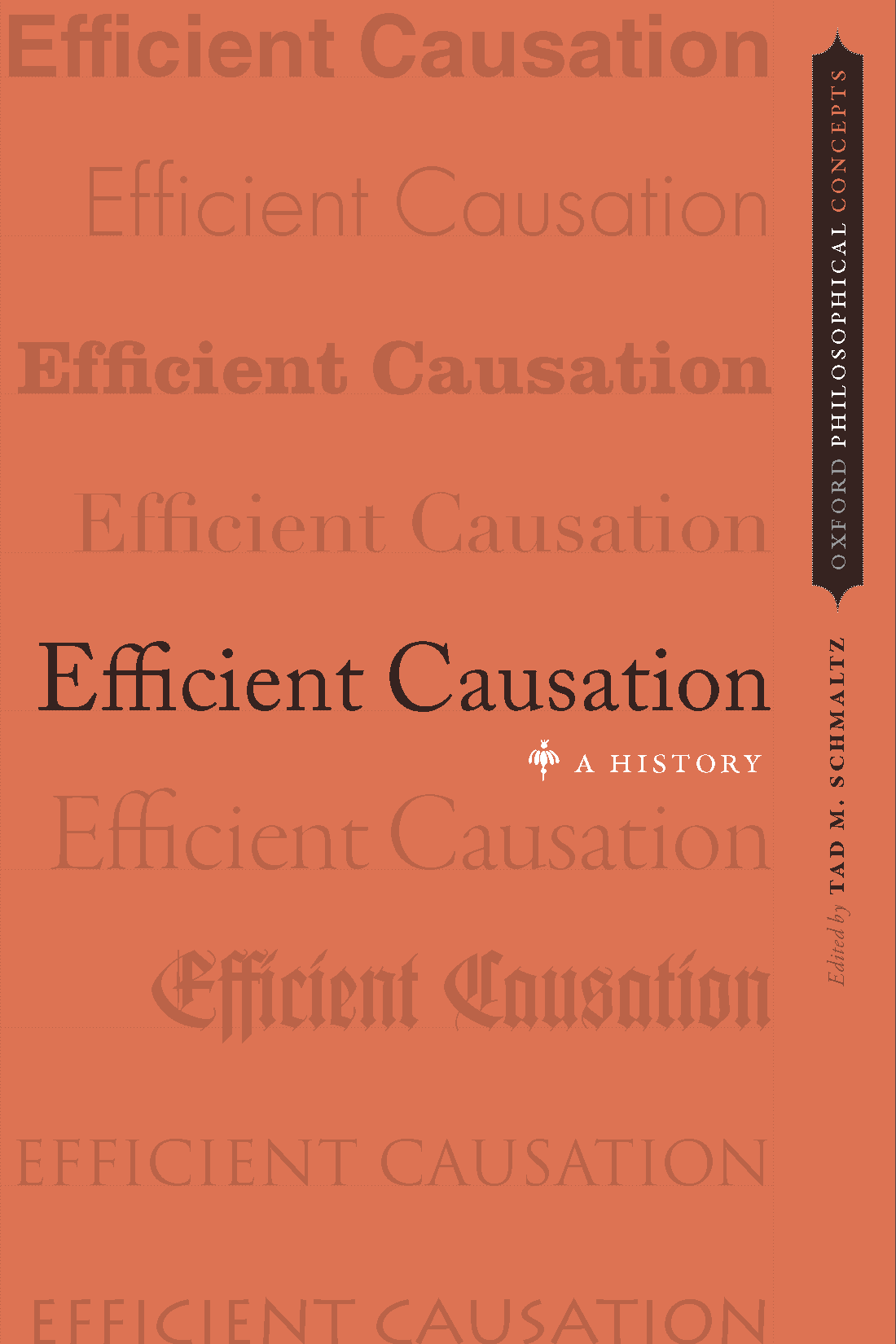 Efficient Causation: A History (2014)
Efficient Causation: A History (2014)
AbstractThis is my edited collection of essays for the
Oxford Philosophical Concepts series. The volume examines how the notion of causation in contemporary philosophy grew out of different historical concepts of efficient causation. It begins with Aristotle’s introduction of the concept of efficient causation, and then considers the transformations and reconsiderations of this concept in late antiquity, medieval and modern philosophy, ending with accounts of causation in contemporary metaphysics and philosophy of science. The volume includes four short “Reflections” that explore the significance of the concept for literature, the history of music, the history of science and contemporary art theory
Find this book
 Receptions of Descartes: Cartesianism and Anti-Cartesianism in Early Modern Europe (2005)
Receptions of Descartes: Cartesianism and Anti-Cartesianism in Early Modern Europe (2005)
Abstract
The French thinker René Descartes is widely regarded as the father of modern philosophy, and his thought dominated intellectual life in Europe in the century following his death. This volume offers original contributions from an international group of distinguished scholars on the prominence of the Descartes-inspired movement, “Cartesianism.” Topics covered include: (i) The reception among women philosophers; (ii) The French reception; (iii) The Dutch reception; (iv) The Italian reception; and (v) The British reception.
Find this book
Volume Co-Editor
 The Oxford Handbook of Descartes and Cartesianism, ed. S. Nadler, T. M. Schmaltz, and D. Antoine-Mahut (2019)
The Oxford Handbook of Descartes and Cartesianism, ed. S. Nadler, T. M. Schmaltz, and D. Antoine-Mahut (2019)
Abstract The seventeenth century was the Cartesian century. Philosophy, including natural philosophy (e.g., physics), was dominated by the metaphysical, epistemological, mathematical, and scientific ideas of Descartes. This is not to say that everyone in the century was a Cartesian, nor even that those who were Cartesians were faithful disciples who merely rehashed Descartes’s theses and arguments. Rather, from the late 1630s until the beginning of the eighteenth century, anyone who sought to make his/her mark in the philosophical world had to deal in some way or another with the Cartesian philosophy.The goal of this volume is to give as complete an overview as possible of the richness, originality, creativity, influence, and variety of Cartesian activity in the seventeenth century, as well as of the significant opposition to it from diverse quarters.
Find this book
 The Problem of Universals in Early Modern Philosophy, ed. S. Di Bella and T. M. Schmaltz (2017)
The Problem of Universals in Early Modern Philosophy, ed. S. Di Bella and T. M. Schmaltz (2017)
AbstractThis is a collection of essays from an international group of scholars that explore the ways in which the ancient problem of universals was transformed in early modern philosophy. Essays consider the various forms of “Platonism,” “conceptualism” and “nominalism” (and distinctive combinations thereof) in the writings of a broad range of early modern thinkers, including Gassendi, Hobbes, Descartes, Malebranche, Spinoza, the Cambridge Platonists, Leibniz, Locke, Berkeley, Hume and Kant.
Find this book

Historical Dictionary of Descartes and Cartesian Philosophy, ed. R. Ariew, D. Des Chene, D. M. Jesseph, T. M. Schmaltz and T. Verbeek (2nd edition, 2015)
Abstract
This second edition of Historical Dictionary of Descartes and Cartesian Philosophy covers the history through a chronology, an introductory essay, and an extensive bibliography. The dictionary section has over 300 cross-referenced entries on various concepts in Descartes’ philosophy, science, and mathematics, as well as biographical entries about the intellectual setting for Descartes’ philosophy and its reception, both with Cartesians and anti-Cartesians.
Find this book
 Integrating History and Philosophy of Science: Problems and Prospects, ed. S. Mauskopf and T. Schmaltz (2012)
Integrating History and Philosophy of Science: Problems and Prospects, ed. S. Mauskopf and T. Schmaltz (2012)
Abstract
Though the publication of Kuhn’s Structure of Scientific Revolutions seemed to herald the advent of a unified study of the history and philosophy of science, it is a hard fact that the history of science and the philosophy of science have increasingly grown apart. Recently, however, there has been a series of workshops on both sides of the Atlantic (called ‘&HPS’) to bring historians and philosophers of science together to discuss integrative approaches. This is therefore an especially appropriate time to explore the problems with and prospects for integrating history and philosophy of science. The original essays in this volume, all from specialists in the history of science or philosophy of science, offer such an exploration from a wide variety of perspectives. The volume combines general reflections on the current state of history and philosophy of science with discussion of the relation between the two disciplines in specific historical and scientific cases.
Find this book
Journal Issue Co-Editor

Volume 58, Issue 3: Material Substance and Quantity, from Suárez to Leibniz, ed. J.-P. Anfray and T. M. Schmaltz (2020)
AbstractThe articles in this special issue are selected from the papers presented at the conference La substance matérielle dans la scolastique tardive et la philosophie moderne, held at the Ecole Normale Supérieure in Paris on 16-17 March 2017. The issue includes articles on the account of the unity of material substance in Suárez, the views of the relations among quantity, impenetrability and extension in Suárez and Descartes, the arguments for a “potentialist” mereology of quantity in the work of Digby, and the status of the “substantial bond” in the later writings of Leibniz.
Find this issue
Volume Contributor (Selection)
 The Routledge Handbook of Women and Early Modern European Philosophy, ed. K. Detlefsen and L. Shapiro (2023)
The Routledge Handbook of Women and Early Modern European Philosophy, ed. K. Detlefsen and L. Shapiro (2023)
“Vitalistic Causation: More, Conway, Cavendish”
Find this book
 Descartes in the Classroom: Teaching Cartesian Philosophy in the Early Modern Age, ed. D. Cellamare and M. Montovani (2023)
Descartes in the Classroom: Teaching Cartesian Philosophy in the Early Modern Age, ed. D. Cellamare and M. Montovani (2023)
“French Cartesianisms in the 1690s: The Textbooks of Regis and Pourchot”
Find this book
 A Companion to Spinoza, ed. Y. Melamed (2021)
A Companion to Spinoza, ed. Y. Melamed (2021)
“Spinoza’s Mereology”
Find this book
 Les Passions de l’âme et leur réception philosophique, ed. V. Carraud and G. Belgioioso (2020)
Les Passions de l’âme et leur réception philosophique, ed. V. Carraud and G. Belgioioso (2020)
“Passive and Active Love in Descartes and Malebranche”
Find this book
 Causation and Cognition in Early Modern Philosophy, ed. D. Perler and S. Bender (2019)
Causation and Cognition in Early Modern Philosophy, ed. D. Perler and S. Bender (2019)
“Cartesian Causation and Cognition: Louis de la Forge and Géraud de Cordemoy”
Find this book

Feminist History of Philosophy: The Recovery and Evaluation of Women’s Philosophical Thought, ed. E. O’Neill and M. Lascano (2019)
“Princess Elisabeth of Bohemia on the Cartesian Mind: Interaction, Happiness, Freedom”
Find this book
 The Oxford Handbook of Descartes and Cartesianism, ed. S. Nadler, T. M. Schmaltz and D. Antoine-Mahut (2019)
The Oxford Handbook of Descartes and Cartesianism, ed. S. Nadler, T. M. Schmaltz and D. Antoine-Mahut (2019)
“Claude Clerselier and the Development of Cartesianism”
“Robert Desgabets and the Supplement to Descartes’s Philosophy”
“The Curious Case of Henricus Regius”
Find this book
 Occasionalism: From Metaphysics to Science, ed. M. F. Camposampiero, M. Priarolo and E. Scribano (2018)
Occasionalism: From Metaphysics to Science, ed. M. F. Camposampiero, M. Priarolo and E. Scribano (2018)
“Continuous Creation and Cartesian Occasionalism in Physics”
Find this book
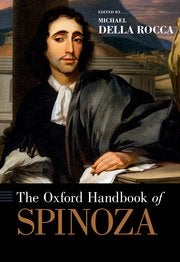 The Oxford Handbook of Spinoza, ed. M. Della Rocca (2018)
The Oxford Handbook of Spinoza, ed. M. Della Rocca (2018)
“Spinoza and Descartes”
Find this book
 The Routledge Companion to Seventeenth Century Philosophy, ed. D. Kaufman (2018)
The Routledge Companion to Seventeenth Century Philosophy, ed. D. Kaufman (2018)
“Theories of Substance”
Find this book
 The Modern Turn, ed. M. Rohlf (2017)
The Modern Turn, ed. M. Rohlf (2017)
“Descartes’s Critique of Scholastic Teleology”
Find this book
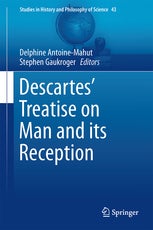 Descartes’ Treatise on Man and its Reception, ed. D. Antoine-Mahut and S. Gaukroger (2016)
Descartes’ Treatise on Man and its Reception, ed. D. Antoine-Mahut and S. Gaukroger (2016)
“The Early Dutch Reception of l’Homme”
Find this book
 Battle of the Gods and Giants Redux: Papers Presented to Thomas M. Lennon, ed. P. Easton and K. Smith (2015)
Battle of the Gods and Giants Redux: Papers Presented to Thomas M. Lennon, ed. P. Easton and K. Smith (2015)
“What is Ancient in French Cartesianism?”
Find this book
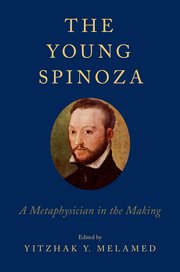 The Young Spinoza: A Metaphysician in the Making, ed. Y. Melamed (2015)
The Young Spinoza: A Metaphysician in the Making, ed. Y. Melamed (2015)
“Spinoza on Eternity and Duration: The 1663 Connection”
Find this book
 The Cambridge Companion to Descartes’ Meditations, ed. D. Cunning (2014)
The Cambridge Companion to Descartes’ Meditations, ed. D. Cunning (2014)
“The Fifth Meditation: Descartes’ Doctrine of True and Immutable Natures”
Find this book
 New Essays on Leibniz’s Theodicy, ed. L. Jorgensen and S. Newlands (2014)
New Essays on Leibniz’s Theodicy, ed. L. Jorgensen and S. Newlands (2014)
“Moral Evil and Divine Concurrence in the Theodicy”
Find this book
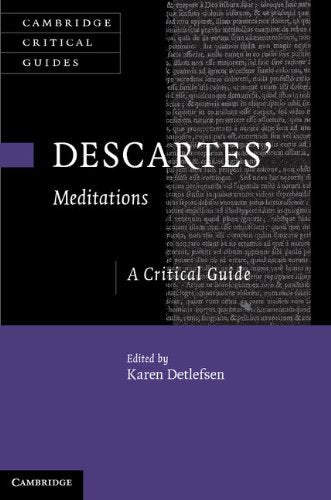
Descartes’ Meditations: A Critical Guide, ed. K. Detlefsen (2013)
“Causation and Causal Axioms”
Find this book
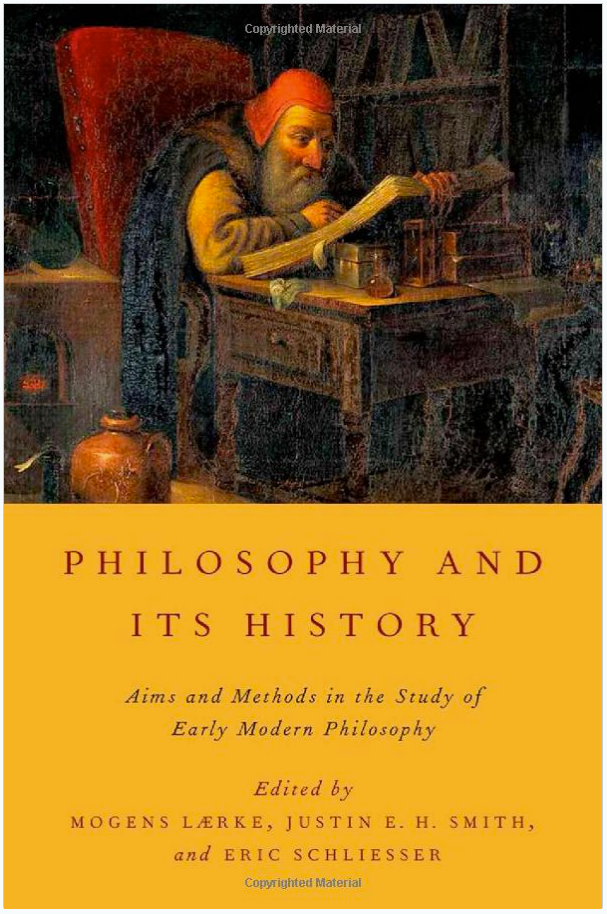 Philosophy and Its History: Aims and Methods in the Study of Early Modern Philosophy, ed. M. Laerke, J. E. H. Smith and E. Schliesser (2013)
Philosophy and Its History: Aims and Methods in the Study of Early Modern Philosophy, ed. M. Laerke, J. E. H. Smith and E. Schliesser (2013)
“What Has History of Science to Do with History of Philosophy?”
Find this book
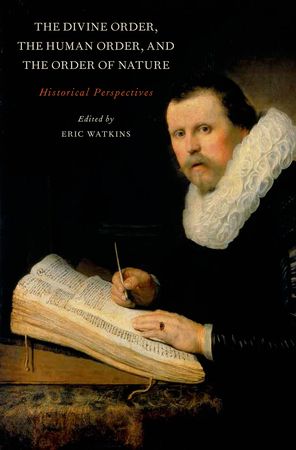 The Divine Order, the Human Order, and the Order of Nature: Historical Perspectives, ed. E. Watkins (2013)
The Divine Order, the Human Order, and the Order of Nature: Historical Perspectives, ed. E. Watkins (2013)
“Laws and Order: Malebranche, Berkeley, Hume”
Find this book
 Matter and Form in Early Modern Science and Philosophy, ed. G. Manning (2012)
Matter and Form in Early Modern Science and Philosophy, ed. G. Manning (2012)
“Substantial Forms as Causes: From Suárez to Descartes”
Find this book
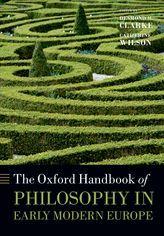 The Oxford Handbook of Philosophy in Early Modern Europe, ed. D. Clarke and C. Wilson (2011)
The Oxford Handbook of Philosophy in Early Modern Europe, ed. D. Clarke and C. Wilson (2011)
“From Causes to Laws”
Find this book
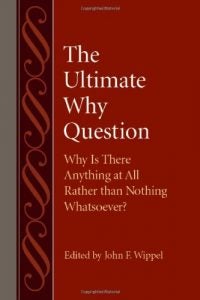 The Ultimate Why Question: Why Is There Anything at All Rather than Nothing Whatsoever?, ed. J. F. Wippel (2011)
The Ultimate Why Question: Why Is There Anything at All Rather than Nothing Whatsoever?, ed. J. F. Wippel (2011)
“Causa Sui and Created Truth in Descartes”
Find this book
 Causation and Modern Philosophy, ed. K. Allen and T. Stoneham (2011)
Causation and Modern Philosophy, ed. K. Allen and T. Stoneham (2011)
“Primary and Secondary Causes in Descartes’s Physics”
Find this book
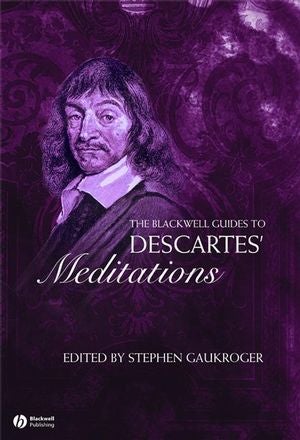 The Blackwell Guide to Descartes’ Meditations, ed. S. Gaukroger (2006)
The Blackwell Guide to Descartes’ Meditations, ed. S. Gaukroger (2006)
“Seventeenth-Century Responses to the Meditations”
Find this book
 The Cambridge Companion to Early Modern Philosophy, ed. D. Rutherford (2006)
The Cambridge Companion to Early Modern Philosophy, ed. D. Rutherford (2006)
“The Science of Mind”
Find this book
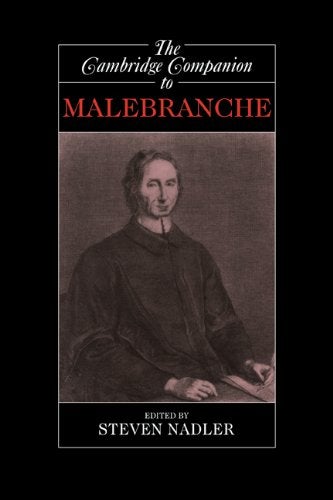 The Cambridge Companion to Malebranche, ed. S. Nadler (2000)
The Cambridge Companion to Malebranche, ed. S. Nadler (2000)
“Malebranche on Ideas and the Vision in God”
Find this book
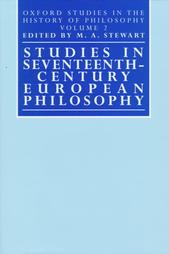 Studies in Seventeenth-Century European Philosophy, ed. M. A. Stewart (1997)
Studies in Seventeenth-Century European Philosophy, ed. M. A. Stewart (1997)
“Descartes on Innate Ideas, Sensation, and Scholasticism: The Response to Regius”’
Find this book
Journal Editorships
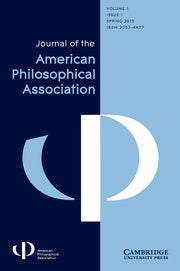 Journal of the American Philosophical Association
Journal of the American Philosophical Association
Associate Editor (from 2014)
Find this Journal
 Journal of the History of Philosophy
Journal of the History of Philosophy
Editor (2003–2010)
Find this Journal
Online Contributor
“Nicolas Malebranche,” entry in the online Stanford Encyclopedia of Philosophy (first published 2002; last updated 2017)
Find this entry
Online lecture, “Moral Evil and Divine Concurrence in the Theodicy” (University of Notre Dame, 2010)
Find Part 1
Find Part 2
Find Part 3
Find Part 4
 Efficient Causation: A History (2014)
Efficient Causation: A History (2014) Receptions of Descartes: Cartesianism and Anti-Cartesianism in Early Modern Europe (2005)
Receptions of Descartes: Cartesianism and Anti-Cartesianism in Early Modern Europe (2005) The Oxford Handbook of Descartes and Cartesianism, ed. S. Nadler, T. M. Schmaltz, and D. Antoine-Mahut (2019)
The Oxford Handbook of Descartes and Cartesianism, ed. S. Nadler, T. M. Schmaltz, and D. Antoine-Mahut (2019) The Problem of Universals in Early Modern Philosophy, ed. S. Di Bella and T. M. Schmaltz (2017)
The Problem of Universals in Early Modern Philosophy, ed. S. Di Bella and T. M. Schmaltz (2017) Integrating History and Philosophy of Science: Problems and Prospects, ed. S. Mauskopf and T. Schmaltz (2012)
Integrating History and Philosophy of Science: Problems and Prospects, ed. S. Mauskopf and T. Schmaltz (2012) The Routledge Handbook of Women and Early Modern European Philosophy, ed. K. Detlefsen and L. Shapiro (2023)
The Routledge Handbook of Women and Early Modern European Philosophy, ed. K. Detlefsen and L. Shapiro (2023)  Descartes in the Classroom: Teaching Cartesian Philosophy in the Early Modern Age, ed. D. Cellamare and M. Montovani (2023)
Descartes in the Classroom: Teaching Cartesian Philosophy in the Early Modern Age, ed. D. Cellamare and M. Montovani (2023)  A Companion to Spinoza, ed. Y. Melamed (2021)
A Companion to Spinoza, ed. Y. Melamed (2021) Les Passions de l’âme et leur réception philosophique, ed. V. Carraud and G. Belgioioso (2020)
Les Passions de l’âme et leur réception philosophique, ed. V. Carraud and G. Belgioioso (2020) Causation and Cognition in Early Modern Philosophy, ed. D. Perler and S. Bender (2019)
Causation and Cognition in Early Modern Philosophy, ed. D. Perler and S. Bender (2019) The Oxford Handbook of Descartes and Cartesianism, ed. S. Nadler, T. M. Schmaltz and D. Antoine-Mahut (2019)
The Oxford Handbook of Descartes and Cartesianism, ed. S. Nadler, T. M. Schmaltz and D. Antoine-Mahut (2019) Occasionalism: From Metaphysics to Science, ed. M. F. Camposampiero, M. Priarolo and E. Scribano (2018)
Occasionalism: From Metaphysics to Science, ed. M. F. Camposampiero, M. Priarolo and E. Scribano (2018) The Oxford Handbook of Spinoza, ed. M. Della Rocca (2018)
The Oxford Handbook of Spinoza, ed. M. Della Rocca (2018) The Routledge Companion to Seventeenth Century Philosophy, ed. D. Kaufman (2018)
The Routledge Companion to Seventeenth Century Philosophy, ed. D. Kaufman (2018) The Modern Turn, ed. M. Rohlf (2017)
The Modern Turn, ed. M. Rohlf (2017) Descartes’ Treatise on Man and its Reception, ed. D. Antoine-Mahut and S. Gaukroger (2016)
Descartes’ Treatise on Man and its Reception, ed. D. Antoine-Mahut and S. Gaukroger (2016) Battle of the Gods and Giants Redux: Papers Presented to Thomas M. Lennon, ed. P. Easton and K. Smith (2015)
Battle of the Gods and Giants Redux: Papers Presented to Thomas M. Lennon, ed. P. Easton and K. Smith (2015) The Young Spinoza: A Metaphysician in the Making, ed. Y. Melamed (2015)
The Young Spinoza: A Metaphysician in the Making, ed. Y. Melamed (2015) The Cambridge Companion to Descartes’ Meditations, ed. D. Cunning (2014)
The Cambridge Companion to Descartes’ Meditations, ed. D. Cunning (2014) New Essays on Leibniz’s Theodicy, ed. L. Jorgensen and S. Newlands (2014)
New Essays on Leibniz’s Theodicy, ed. L. Jorgensen and S. Newlands (2014)
 Philosophy and Its History: Aims and Methods in the Study of Early Modern Philosophy, ed. M. Laerke, J. E. H. Smith and E. Schliesser (2013)
Philosophy and Its History: Aims and Methods in the Study of Early Modern Philosophy, ed. M. Laerke, J. E. H. Smith and E. Schliesser (2013) The Divine Order, the Human Order, and the Order of Nature: Historical Perspectives, ed. E. Watkins (2013)
The Divine Order, the Human Order, and the Order of Nature: Historical Perspectives, ed. E. Watkins (2013) Matter and Form in Early Modern Science and Philosophy, ed. G. Manning (2012)
Matter and Form in Early Modern Science and Philosophy, ed. G. Manning (2012) The Oxford Handbook of Philosophy in Early Modern Europe, ed. D. Clarke and C. Wilson (2011)
The Oxford Handbook of Philosophy in Early Modern Europe, ed. D. Clarke and C. Wilson (2011) The Ultimate Why Question: Why Is There Anything at All Rather than Nothing Whatsoever?, ed. J. F. Wippel (2011)
The Ultimate Why Question: Why Is There Anything at All Rather than Nothing Whatsoever?, ed. J. F. Wippel (2011) Causation and Modern Philosophy, ed. K. Allen and T. Stoneham (2011)
Causation and Modern Philosophy, ed. K. Allen and T. Stoneham (2011) The Blackwell Guide to Descartes’ Meditations, ed. S. Gaukroger (2006)
The Blackwell Guide to Descartes’ Meditations, ed. S. Gaukroger (2006) The Cambridge Companion to Early Modern Philosophy, ed. D. Rutherford (2006)
The Cambridge Companion to Early Modern Philosophy, ed. D. Rutherford (2006) The Cambridge Companion to Malebranche, ed. S. Nadler (2000)
The Cambridge Companion to Malebranche, ed. S. Nadler (2000) Studies in Seventeenth-Century European Philosophy, ed. M. A. Stewart (1997)
Studies in Seventeenth-Century European Philosophy, ed. M. A. Stewart (1997) Journal of the American Philosophical Association
Journal of the American Philosophical Association Journal of the History of Philosophy
Journal of the History of Philosophy

